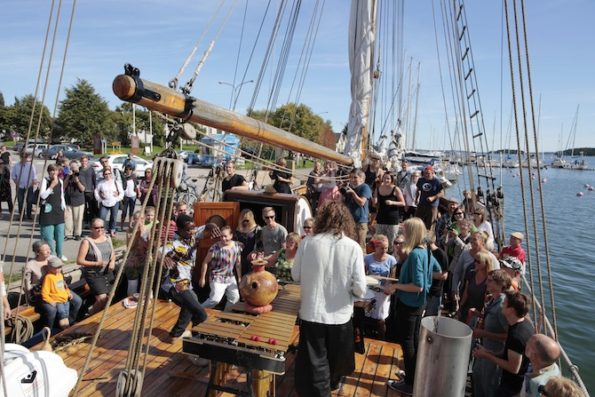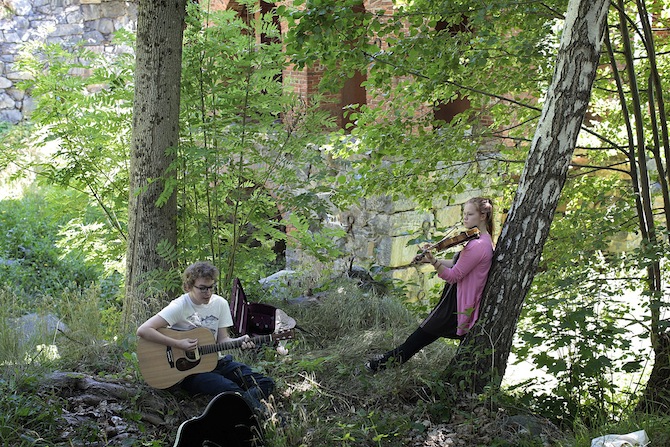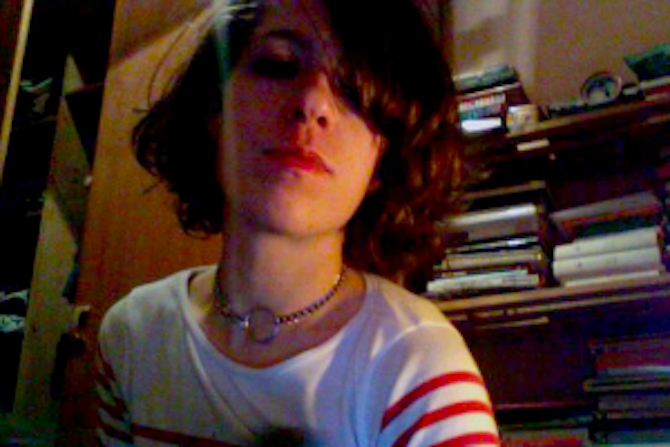Search
To search for an exact match, type the word or phrase you want in quotation marks.
A*DESK has been offering since 2002 contents about criticism and contemporary art. A*DESK has become consolidated thanks to all those who have believed in the project, all those who have followed us, debating, participating and collaborating. Many people have collaborated with A*DESK, and continue to do so. Their efforts, knowledge and belief in the project are what make it grow internationally. At A*DESK we have also generated work for over one hundred professionals in culture, from small collaborations with reviews and classes, to more prolonged and intense collaborations.
At A*DESK we believe in the need for free and universal access to culture and knowledge. We want to carry on being independent, remaining open to more ideas and opinions. If you believe in A*DESK, we need your backing to be able to continue. You can now participate in the project by supporting it. You can choose how much you want to contribute to the project.
You can decide how much you want to bring to the project.

At the end of August the second edition of the festival Norpas took place in Taalintehdas-Dalsbruk, an island on the West of Finland. For four days Norpas brings together musicians, artists, performers and dance companies, to create a really participatory cultural environment. The participatory feel was evident right from the very beginning: in all the events and concerts the public ranged from 2 to 70 years old. That is to say, what happened there wasn’t self-consumption for a cultural or a generational sector. Norpas was for all and sundry, without any distinctions.
In the programme as well the same treatment was given to the concerts of recognised musicians as to the photographic exhibitions, talks, films and choreographies made by adolescents from the neighbourhood. Everything added to and was granted equal weight. The key to generating an ambience like this lay in participation and complicity. Choosing a town or location that is not one of the recurring centres for cultural events (fleeing from capitals) helps considerably. Even if it’s only to see a bit of nature, distance oneself from the epicentres where everything happens and coexist in a leisurely manner: the landscape of the trees and lakes setting the stage and ambience, while the artists add meaning to the moment.

Many of the musicians were local and well known around there: Kimmo Pohjonen, Yrjänä Sauros, Theo Majamäki, Nieminen & Litmanen, Mopo, Pentti Hildén & Janne Lehtinen… Though there were also those from other parts of Europe and the rest of the world: Paolo Angeli, Fofo and Ramón, Andrew Ashimba… They often ended up intermingling, playing in amongst themselves between concerts, in the intervals and during meals. Creative commons, sharing, peer to peer, cheek by jowl, the knowledge, the universal language and open code of music, understanding culture in all its diverse manifestations.
The budget was modest, with support coming from different entities, a little from each one, with enthusiasm being an equally important part of the capital. If here one talks about the ethos of do it yourself (D.I.Y) in Norpas everything was done D.I.A.T, in a do it all together fashion. What is called grassroots, participatory culture.
One curious fact about Norpas is that it is inspired in other editions that were made not so far from here. For example, Surpas that took place in Portbou, the frontier town that saw the demise of Walter Benjamin. In both Surpas and Norpas the Finnish-Mediterranean mixture is present; in the organisation as much as in the artists invited, with the formula for bringing culture to the people being the same. Agreeing on the spaces, respecting the landscape, counting on complicities and moments of autonomy, a break from the everyday repetition of the large cities. Surpas, incidentally, disappeared for being one of these many entities that got their fingers burnt with the grants from CONCA (those Excel sheets that determined who received grants or not, who complied with the expectations of economic profit or not).
And another fact, just to surprise and turn the subject on its head, given that when all’s said and done we are talking about culture, participation and motors for society. The Finnish educational system (the one that leaves us all with our mouths agape) has a few ties at its root with the Modern School of Ferrer i Guàrdia: links between Finland and Catalonia; educational models and moments in history that are forgotten. It might be worth thinking about which forms of culture we want, which receive support, which survive, and which we forget, despite the determination to dust off the historic memory and generate identities based on the country; whether music festivals like Primavera Sound or Sónar satisfy us and if they are the only viable-profitable ones; whether we prefer to compete over who’s wearing the coolest trainers or participate and share in the process of creating culture.
Finland is closer than it seems.

Irina Mutt she keeps on quoting Annie Sprinkle.
"A desk is a dangerous place from which to watch the world" (John Le Carré)